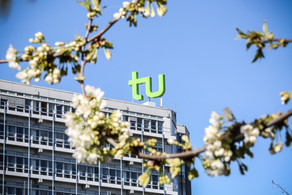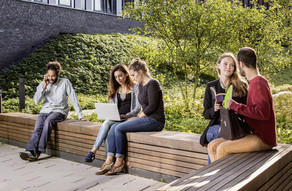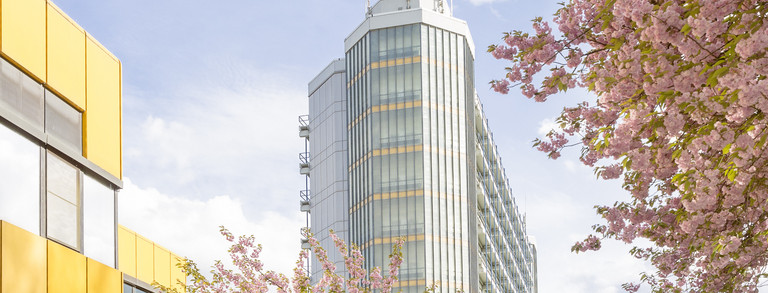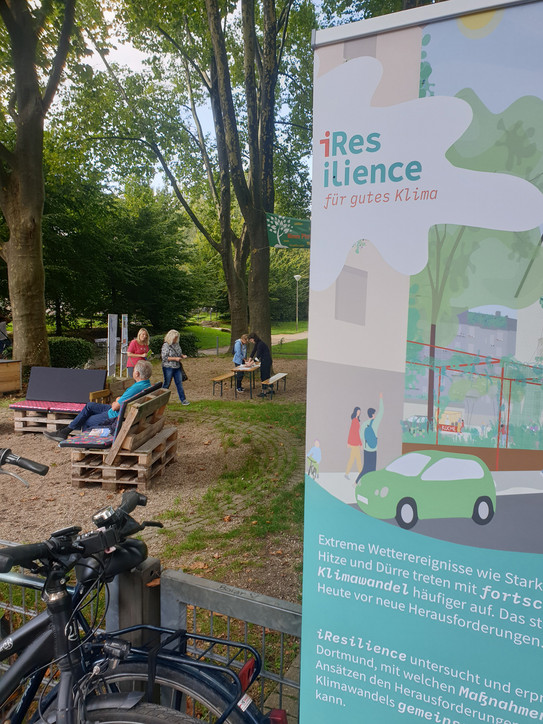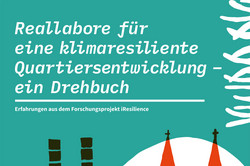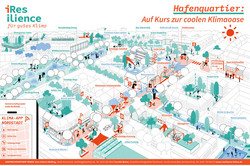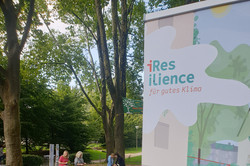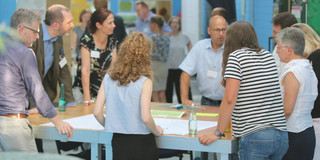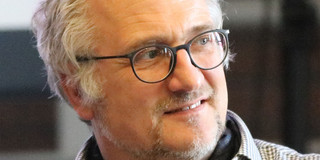iResilience veröffentlicht Handbuch zu Klimafolgenanpassung für Kommunen
- News
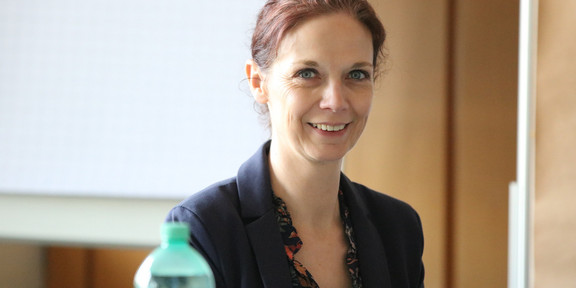
Die Folgen des Klimawandels wirken sich in Städten besonders heftig aus. Dichte Bebauung, spärliches Grün und versiegelte Flächen können Hitze und Wassermassen wenig entgegensetzen. Mit welchen Strategien sich die Menschen dennoch gegen die Herausforderungen des Klimawandels wappnen können, untersucht das 2018 gestartete Verbundprojekt iResilience unter Federführung der Sozialforschungsstelle der TU Dortmund (sfs). Die Forscher:innen haben nun ein „Drehbuch“ für andere Kommunen veröffentlicht. Zudem wird das Projekt demnächst international weitergeführt.
Under the leadership of Stephanie Bund, sfs is working with the cities of Dortmund and Cologne to develop new practices and technologies to improve urban, climate-adapted resilience. In the real labs Cologne-Deutz, Dortmund-Jungferntal and Dortmund Harbour, measures have been tested to make these neighbourhoods more climate resilient - for example with sensors on street lamps that measure temperature and humidity, heat prevention campaigns or urban gardening projects. Over the past years, in addition to content-related results, many insights have been gained into the process and structure of real laboratories and cooperative collaboration.
The script focuses on the applicability of reallabs in the context of climate-robust neighbourhood development and is aimed in particular at interested municipalities.
Topics include the benefits, preparation and set-up of a reallab, systematic public relations work, social innovations and smart city infrastructures as well as formats for digital cooperation. "With the script, we want to help other municipalities answer the question of whether reallabs are also suitable for them," says Stephanie Bund. The script can be downloaded free of charge here (PDF, German).
Successor project in the starting blocks
The iResilience project will run until the end of June this year. The successor project is already in the starting blocks on the part of the City of Dortmund: iResilience goes Europe is an international exchange on climate change adaptation and resilience between the city of Dortmund and the Romanian city of Cluj-Napoca. During the two-year project, the partner municipalities will exchange experiences and knowledge on various aspects of urban resilience in national and international workshops. Topics may include climate impact adaptation, digitalisation and smart and sustainable cities. The results collected in iResilience goes Europe will be used to develop a "script" that can be transferred to other European cities on how to work on concrete urban resilience topics using a participatory approach with local practitioners. Social innovation and analogue participation processes are to be combined with digital innovations in urban design.
Links

